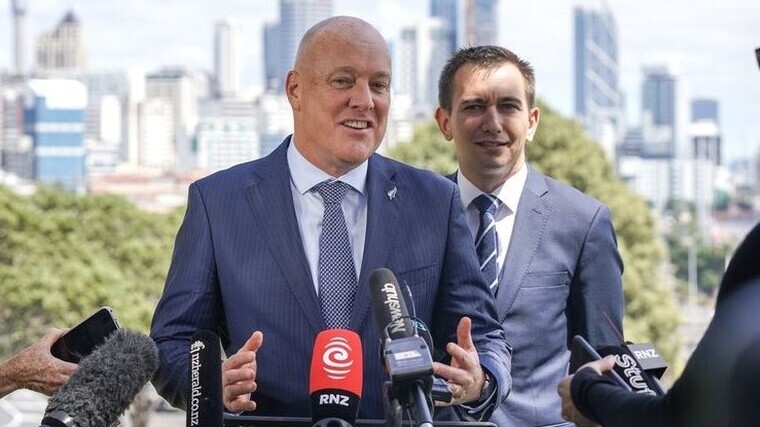Regional fuel tax faces chop

The government has confirmed the Auckland regional fuel tax will end on June 30 with legislation to be introduced as part of the coalition’s 100-day policy plan.
Prime Minister Christopher Luxon and Transport Minister Simeon Brown, pictured, announced the change at a press conference in Auckland on February 8.
“Since July 1, 2018, Aucklanders have faced an additional 11.5 cents per litre tax on fuel, over and above what the rest of the country pays, increasing the cost of living at a time when they can least afford it,” explains Brown.
“Ending this tax is one way to reduce the price of fuel and ease some of the financial pressure facing households in our largest city.”
He claims cutting the levy on petrol and diesel means Toyota Hilux drivers will save about $9.20 when they fill up, while those with a Toyota Corolla will save about $5.75.
“Fuel tax is becoming an increasingly regressive form of taxation and costs people on lower incomes with less fuel-efficient vehicles more than those who have newer more fuel-efficient vehicles,” adds Brown.
“We intend to fully remove the legislative framework for regional fuel taxes.”
The minister notes that as of September 2023, about $780 million in regional fuel tax revenue had been raised, with approximately $341m remaining unspent.
Leaders react
Wayne Brown, Mayor of Auckland, warns the government’s action means residents of the supercity will have to pay higher rates or miss out on major road and public transport improvements.
He says ditching the regional fuel tax in 2024 is four years earlier than planned and will leave Auckland with a shortfall in transport funding of $1.2 billion over that period.
“While I acknowledge that the National Party campaigned to repeal the regional fuel tax, and they are making good on their election promise, this decision will have unintended consequences unless the government is prepared to foot the bill for upcoming transport projects,” adds Brown.
“Auckland Council will have no choice but to pause any further work on projects funded by the regional fuel tax, including those already contracted, to see how we can fund them in the long-term plan.”
Meanwhile, road freight operators have welcomed the government prioritising funding collected for roading being used for that purpose.
James Smith, general manager policy and advocacy at the National Road Carriers Association, says the road funding model based on fuel excise duty is broken and not bringing in enough to cover maintenance of existing networks.
He adds public private partnerships, road tolls and value capture also need to be part of the mix to fund new highways.
“Road freight operators will want to see a charging system, where all beneficiaries of the road network pay their fair share,” explains Smith.
“While it makes sense that charging is calculated on weight and kilometres travelled, with 93 per cent of goods delivered by road, it’s important this funding is set right so it doesn’t distort the cost of goods.”





